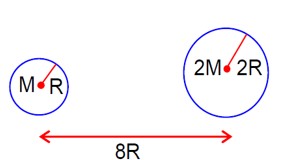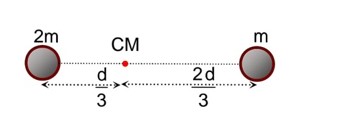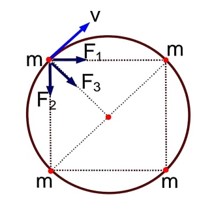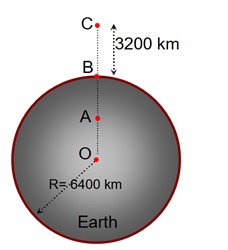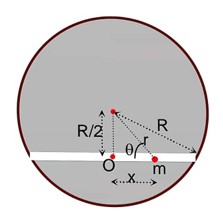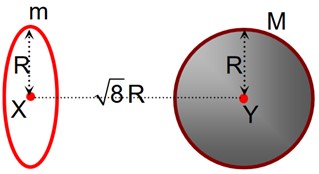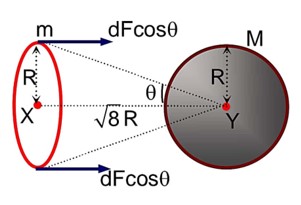Physics Gravitation
Get insights from 160 questions on Physics Gravitation, answered by students, alumni, and experts. You may also ask and answer any question you like about Physics Gravitation
Follow Ask QuestionQuestions
Discussions
Active Users
Followers
New answer posted
4 months agoContributor-Level 10
We have to find the point where the gravitational field must be zero.
EG = 0
GM/x² = G (9M)/ (8R-x)²
1/x² = 9/ (8R-x)²
8R - x = 3x => x = 2R
Potential at A (surface of first planet), VA = -GM/R - G (9M)/7R = -16GM/7R
Potential at point x, Vx = -GM/x - G (9M)/ (8R-x) = -GM/2R - G (9M)/6R = -2GM/R
ΔV = Vx - VA = -2GM/R - (-16GM/7R) = (-14+16)GM/7R = 2GM/7R
Using conservation of mechanical energy
ΔKE = ΔU = mΔV
½mv² = m (2GM/7R)
v² = 4GM/7R
v = √ (4GM/7R) => a = 4
New answer posted
4 months agoContributor-Level 10
g = (4/3)πRρG . (i) (ρ = density)
Now ρ = M/V = M/ (4/3)πR³)
R³ = M/ (4/3)πρ) => R ∝ (M/ρ)¹/³
From equation (i)
g ∝ Rρ ∝ (M/ρ)¹/³ρ = M¹/³ρ²/³
For planet, M' = 2M, ρ' = ρ
g'/g = (M'/M)¹/³ (ρ'/ρ)²/³ = (2)¹/³ (1)²/³ = 2¹/³
W' = mg' = m (2¹/³g) = 2¹/³ (mg) = 2¹/³W
New answer posted
4 months agoContributor-Level 10
As we go pole to equator, acceleration due to gravity decreases. So, weight of the body will also reduces. Thus, weight on equator will be slightly smaller than 49 N.
New answer posted
4 months agoContributor-Level 10
Image is virtual, when an object is placed at distance 10 cm from the lens and image is real when object is placed at 20 cm from the lens.
Thus, m1 = -m2 =>
Taking an Exam? Selecting a College?
Get authentic answers from experts, students and alumni that you won't find anywhere else
Sign Up on ShikshaOn Shiksha, get access to
- 66k Colleges
- 1.2k Exams
- 681k Reviews
- 1800k Answers

